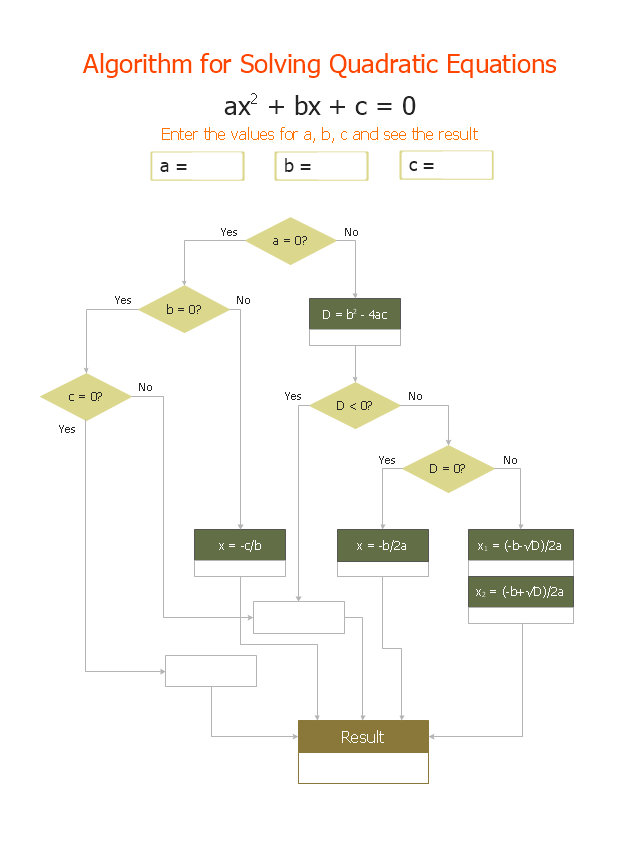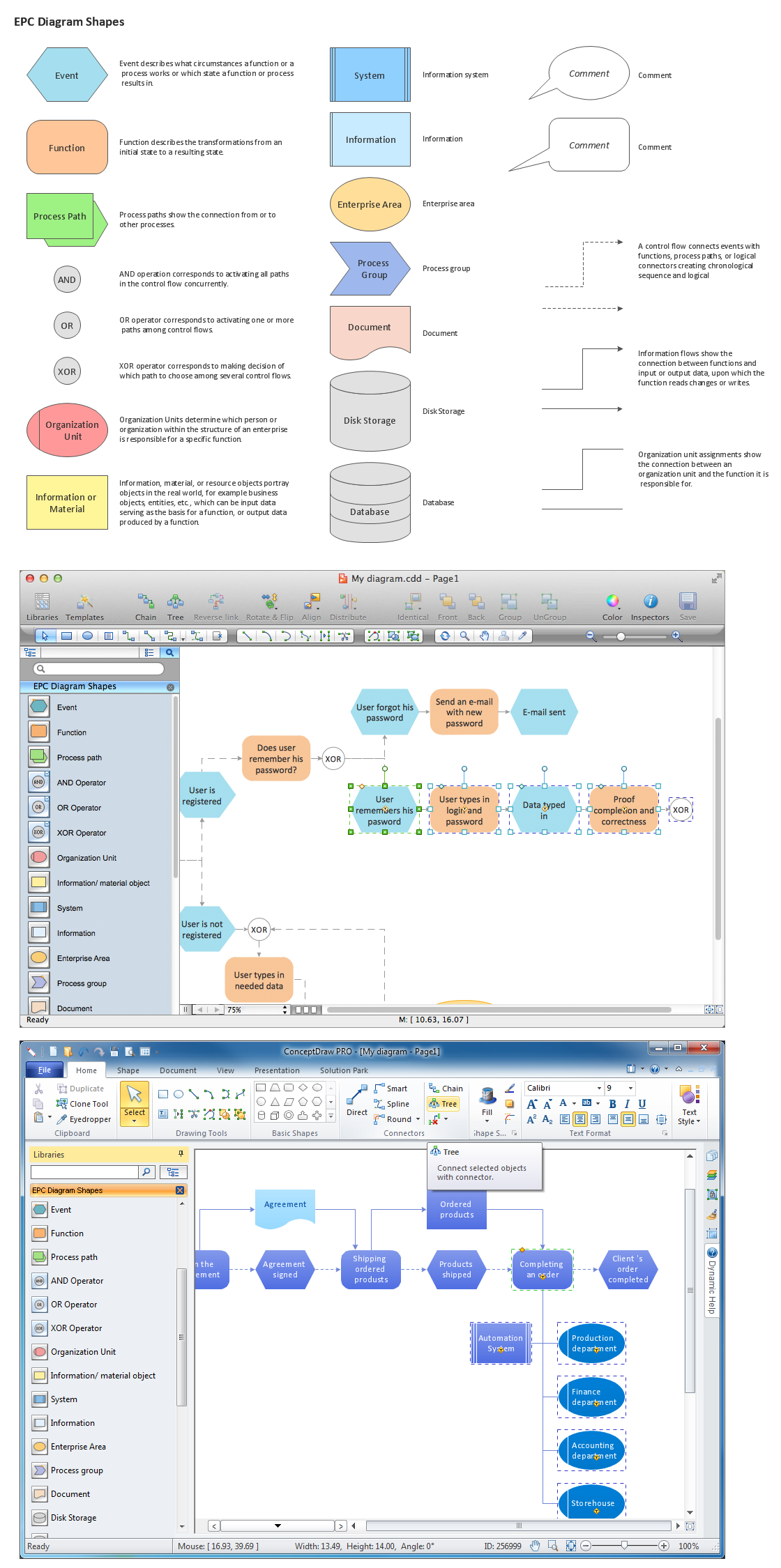"In elementary algebra, a quadratic equation (from the Latin quadratus for "square") is any equation having the form
ax^2+bx+c=0
where x represents an unknown, and a, b, and c are constants with a not equal to 0. If a = 0, then the equation is linear, not quadratic. The constants a, b, and c are called, respectively, the quadratic coefficient, the linear coefficient and the constant or free term.
Because the quadratic equation involves only one unknown, it is called "univariate". The quadratic equation only contains powers of x that are non-negative integers, and therefore it is a polynomial equation, and in particular it is a second degree polynomial equation since the greatest power is two.
Quadratic equations can be solved by a process known in American English as factoring and in other varieties of English as factorising, by completing the square, by using the quadratic formula, or by graphing." [Quadratic equation. Wikipedia]
The flowchart example "Solving quadratic equation algorithm" was created using the ConceptDraw PRO diagramming and vector drawing software extended with the Mathematics solution from the Science and Education area of ConceptDraw Solution Park.
ax^2+bx+c=0
where x represents an unknown, and a, b, and c are constants with a not equal to 0. If a = 0, then the equation is linear, not quadratic. The constants a, b, and c are called, respectively, the quadratic coefficient, the linear coefficient and the constant or free term.
Because the quadratic equation involves only one unknown, it is called "univariate". The quadratic equation only contains powers of x that are non-negative integers, and therefore it is a polynomial equation, and in particular it is a second degree polynomial equation since the greatest power is two.
Quadratic equations can be solved by a process known in American English as factoring and in other varieties of English as factorising, by completing the square, by using the quadratic formula, or by graphing." [Quadratic equation. Wikipedia]
The flowchart example "Solving quadratic equation algorithm" was created using the ConceptDraw PRO diagramming and vector drawing software extended with the Mathematics solution from the Science and Education area of ConceptDraw Solution Park.
The Building Blocks Used in EPC Diagrams
Event-Driven Process Chain Diagrams is using for improvement throughout an organisation. ConceptDraw PRO - software that reduces the time needed to create a EPC diagrams.- Flowchart To Find Real Root Of Equation
- Algorithm And Flowchart To Find Roots Of Quadratic Equation
- Solving quadratic equation algorithm - Flowchart | Polar Graph ...
- Write A Flowchart To Find The Roots Of A Quadratic Equation
- Draw A Flowchart To Find The Root Or A Lineare Equation Of
- Draw A Flowchart To Find A Root Of A Line Equation Of Degree
- Solving quadratic equation algorithm - Flowchart | What Will Be The ...
- Solving quadratic equation algorithm - Flowchart | How To Make a ...
- Draw A Flowchart To Find Out The Roots Of A Quadratic Equation
- Solving quadratic equation algorithm - Flowchart | Algorithm And ...
- Euclidean algorithm - Flowchart | Solving quadratic equation ...
- Draw A Flowchart For Finding The Roots Of Quadratic Equation Image
- Euclidean algorithm - Flowchart | Solving quadratic equation ...
- Draw A Flowchart To Find Quadratic Equation
- Flow Chart To Find Quadratic Equation
- Solving quadratic equation algorithm - Flowchart | Best ...
- Solving quadratic equation algorithm - Flowchart | Basic ...
- Draw Flowchart To Compute The Roots Of A Quadratic Equation
- Euclidean algorithm - Flowchart | Solving quadratic equation ...
- Solving quadratic equation algorithm - Flowchart | Basic Flowchart ...

